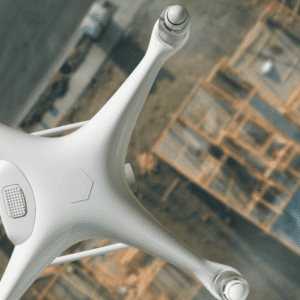Embracing the Future of Construction: Innovations Reshaping the Industry!

The construction industry has always been at the forefront of innovation, shaping the skylines of cities and driving economic growth. Over the years, advancements in technology have accelerated progress, making construction faster, safer, and more sustainable. From groundbreaking building materials to cutting-edge automation, this article explores some of the new technologies that are transforming the construction landscape.
Building Information Modeling (BIM)
Building Information Modeling (BIM) is a game-changer in the construction industry. It is a digital representation of a building’s physical and functional characteristics, allowing architects, engineers, and contractors to collaborate seamlessly in a virtual environment. BIM offers detailed 3D models that provide valuable insights into the construction process, optimizing design and planning, reducing errors, and enhancing cost-effectiveness.
With BIM, stakeholders can visualize the entire project, analyze potential clashes, and make data-driven decisions throughout the construction journey. This technology streamlines communication, minimizes delays, and ensures that construction projects are delivered with greater precision and efficiency.
3D Printing in Construction
3D printing is no longer confined to small-scale applications. In construction, it is revolutionizing the way buildings are constructed, making the process faster, more affordable, and eco-friendly. Large-scale 3D printers can create components, walls, and even entire structures using various materials like concrete, cement, and recycled materials.
The benefits of 3D printing in construction are numerous, including reduced construction waste, lower labor costs, and enhanced design flexibility. This technology also enables architects to explore innovative shapes and structures that were previously impossible with traditional construction methods.
Drones for Surveying and Inspections
Drones have taken the construction industry by storm, providing an efficient and accurate means of surveying large areas and inspecting hard-to-reach locations. Equipped with high-resolution cameras and sensors, drones can quickly capture data and create detailed aerial maps, 3D models, and topographical surveys.
Construction companies utilize drones to monitor project progress, identify potential safety hazards, and streamline workflows. The data collected by drones can also be used to analyze construction sites, plan logistics, and assess the impact of construction on the environment.
Internet of Things (IoT) and Smart Construction
The Internet of Things (IoT) is transforming construction sites into interconnected and intelligent environments. By embedding sensors and devices in construction equipment and materials, real-time data can be collected, analyzed, and used to optimize performance and safety.
Smart construction technology allows project managers to remotely monitor equipment health, track worker location and activities, and even adjust building conditions to enhance energy efficiency. With IoT, construction sites become safer, more efficient, and better managed, resulting in faster project completion and reduced costs.
Augmented Reality (AR) and Virtual Reality (VR)
Augmented Reality (AR) and Virtual Reality (VR) are enhancing the design, planning, and training processes in construction. AR and VR technologies enable architects and engineers to visualize and interact with their designs in 3D, offering a more immersive experience.
These technologies allow stakeholders to walk through buildings before construction even begins, identify design flaws, and make necessary changes. Additionally, AR and VR are used in training construction workers, providing them with realistic simulations to practice tasks and enhance safety protocols.
The construction industry is embracing a new era of innovation, thanks to groundbreaking technologies that are redefining traditional practices. Building Information Modeling (BIM), 3D printing, drones, Internet of Things (IoT), and augmented and virtual reality are just a few examples of the remarkable advancements shaping the future of construction.
These technologies not only improve construction efficiency but also enhance safety standards and sustainability practices. As the industry continues to integrate these new technologies, we can expect even greater achievements in construction, from monumental skyscrapers to eco-friendly and interconnected smart cities. Embracing these advancements is crucial for construction companies to stay competitive, meet evolving demands, and build a better future for the world.
#constructionindustry #innovationinconstruction #buildingmaterials #TechInConstruction #sustainableconstruction #greenbuilding #smartconstruction #bim #3dprinting #dronesinconstruction #iot #ARinConstruction #VRinConstruction #cfrp #clt #SelfHealingConcrete #ALON #futureofconstruction #ecofriendlymaterials #buildinginnovation #modernconstruction #techadvancements #constructiontechnology #sustainability #newmaterials #infrastructure #smartcities